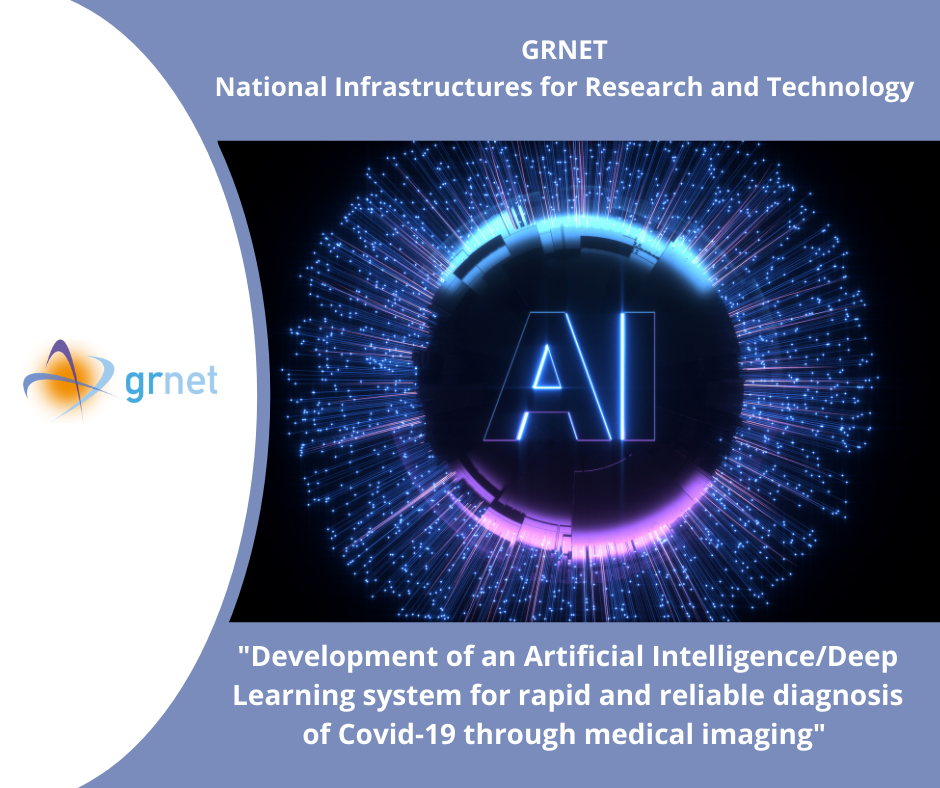
Α rapid and reliable diagnostic system for the detection of Covid-19 is created by GRNET, based on Artificial Intelligence / Deep Learning and the analysis of chest CT scans. The method can improve the effectiveness of diagnosis, especially in the early stages, but also the evaluation of the treatment of patients, and can be an important aid in laboratory polymerase chain reaction reverse transcription (RT-PCR) laboratory tests. Chest CT scan series, which have been stored in the Data Center of GRNET (during HARMONI project), constitute the dataset for this framework, according to a Memorandum of Understanding signed with the Greek Ministry of Health.
The project creates a training set of anonymized CT scan series, each of which consists of a sequence of two-dimensional digital images. This data set is used to train a deep learning system, so that when we present an input to it, the system decides whether or not this input corresponds to a Covid-19 case, whilst being transparent, by providing information on the structure and features of its decision making.
The approach is based primarily on supervised learning, which requires labelling of each CT scan series, with respect to categories ‘Healthy’ or ‘Patient’. Labelling of the training set is performed with the help of medical experts. The current training set includes 1,500 CT inputs and it is continuously increased, since the ability of the deep learning system to provide good diagnosis is based on training with many representative samples of Covid-19.
A system has already been developed based on deep neural networks (convolutional and recurrent, CNN-RNN), extending our previous research [1-3], which is constantly ‘learning’ the growing training data set. Its performance is continuously evaluated, using a similarly annotated test data set.
More information can be provided by Dr Levon Sukissian lsouki@admin.grnet.gr.
[1] D. Kollias, A. Tagaris, A.- G. Stafylopatis, S. Kollias, G. Tagaris, “Deep Neural Architectures for Prediction in Healthcare”, Complex Intelligent Systems, vol. 4, no. 2, pp. 119–131, 2018.
[2] J. Wingate, I. Kollia, L. Bidaut, S. Kollias, “A Unified Deep Learning Approach to Prediction of Parkinson’s Disease”, IET Image Processing, pp. 1-10, May/June 2020.
[3] D. Kollias, M. Seferis, V. Brillakis, Y. Vlaxos, J. Wingate, L. Soukissian, S. Kollias, “‘Deep Transparent Prediction through Latent Representation Analysis”, European Conference on Artificial Intelligence (ECAI 2020), 1st TAILOR Workshop on Foundations of Trustworthy AI – Integrating Learning, Optimization and Reasoning, Santiago de Compostela, 29-30/8/2020.


